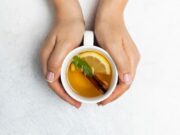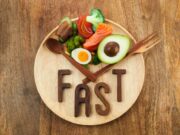Best Food for Parakeets to Stay Healthy: Nutrition Tips
When it comes to caring for your parakeet, understanding their nutritional needs is paramount. These vibrant little birds require a balanced diet to thrive, which includes a mix of seeds, fresh fruits, vegetables, and specially formulated pellets. Parakeets are primarily granivores, meaning their natural diet consists mainly of seeds.
However, they also benefit from a variety of other food sources that provide essential vitamins and minerals. In the wild, parakeets forage for food, which means they consume a diverse range of seeds and plant materials. This natural behavior is crucial for their health, as it helps them obtain the nutrients they need to stay active and vibrant.
As a pet owner, you should aim to replicate this diversity in their diet. A well-rounded diet not only supports their physical health but also contributes to their mental well-being, keeping them engaged and happy. Please feel free to reach out to us through our Contact Us page for any inquiries or assistance.
Key Takeaways
- Parakeets require a balanced diet that includes a variety of nutrients such as vitamins, minerals, and proteins.
- Fresh foods like leafy greens, fruits, and vegetables are essential for a parakeet’s overall health and well-being.
- Commercial pellets specifically formulated for parakeets can provide essential nutrients and should be a staple in their diet.
- Safe and healthy treats for parakeets include seeds, nuts, and small portions of fruits, but should be given in moderation.
- Proper hydration is crucial for parakeets, and fresh, clean water should always be available.
The Importance of a Balanced Diet for Parakeets
A balanced diet is vital for your parakeet’s overall health and longevity. Just like humans, birds require a variety of nutrients to function optimally. A diet lacking in essential vitamins and minerals can lead to health issues such as feather plucking, lethargy, and even more severe conditions like liver disease or obesity.
By providing a balanced diet, you can help prevent these problems and ensure your feathered friend lives a long, healthy life. Moreover, a balanced diet plays a significant role in your parakeet’s behavior and mood. Birds that receive proper nutrition are often more active, social, and less prone to stress-related behaviors.
This means that by focusing on their dietary needs, you’re not just feeding them; you’re also nurturing their emotional well-being. So, investing time in understanding what constitutes a balanced diet for your parakeet is one of the best things you can do as a pet owner.
Best Fresh Foods for Parakeets
Incorporating fresh foods into your parakeet’s diet is an excellent way to enhance their nutrition. Fresh fruits and vegetables are packed with vitamins, minerals, and antioxidants that can boost your bird’s immune system and overall health. Some of the best options include leafy greens like kale and spinach, which are rich in calcium and iron.
Carrots are another great choice; they provide beta-carotene, which is essential for good vision. Fruits such as apples, berries, and bananas can also be offered in moderation. These sweet treats not only provide hydration but also serve as a delightful snack that your parakeet will love.
Just remember to wash all fruits and vegetables thoroughly to remove any pesticides or chemicals before serving them to your bird. By introducing a variety of fresh foods into their diet, you can keep mealtime exciting while ensuring they receive the nutrients they need.
Recommended Commercial Pellets for Parakeets
While fresh foods are essential, high-quality commercial pellets should also be a staple in your parakeet’s diet. Pellets are designed to provide a complete nutritional profile that meets the specific needs of parakeets. When choosing pellets, look for brands that list whole grains as the first ingredient and avoid those with artificial colors or preservatives.
Some popular brands include Harrison’s Bird Foods and Kaytee Exact Rainbow. These pellets are formulated to provide balanced nutrition while being palatable for your feathered friend.
By incorporating these recommended commercial pellets into their diet, you can ensure that your parakeet receives all the essential nutrients they need for optimal health.
Safe and Healthy Treats for Parakeets
Treats can be a fun way to bond with your parakeet while also providing them with additional nutrition. However, it’s crucial to choose treats that are safe and healthy for them. Natural options like millet sprays or small pieces of dried fruit can be excellent choices.
These treats not only satisfy their cravings but also offer some nutritional benefits. You can also consider making homemade treats using ingredients like oats or whole grain bread. Just be sure to keep portions small and infrequent to avoid overindulgence.
Remember that treats should complement their main diet rather than replace it. By offering safe and healthy treats, you can enrich your parakeet’s life while keeping their diet balanced.
Hydration and the Role of Water in a Parakeet’s Diet
Providing Fresh Water
Change the water daily to prevent contamination and encourage your parakeet to drink. You may also consider using a water bottle instead of a bowl, especially if your bird tends to splash water or prefers drinking from a spout.
Adding a Twist to Water
Some parakeets enjoy flavored water made from fresh fruits or herbs. However, it is vital to ensure that any additives are safe for birds.
Prioritizing Hydration for a Healthy Parakeet
By making hydration a priority in your parakeet’s diet, you are supporting their health in a fundamental way.
Foods to Avoid for Parakeets
While there are many foods that are beneficial for your parakeet, there are also several that you should avoid at all costs. Certain foods can be toxic or harmful to birds, leading to serious health issues. For instance, avocado is known to be toxic to birds and should never be offered.
Similarly, chocolate and caffeine are dangerous substances that can cause severe reactions. Other foods to avoid include high-fat or high-sugar items like processed snacks or sugary fruits. These can lead to obesity and other health problems over time.
Always do your research before introducing new foods into your parakeet’s diet, and when in doubt, consult with an avian veterinarian for guidance on safe options.
Creating a Healthy Feeding Schedule for Parakeets
Establishing a healthy feeding schedule is crucial for maintaining your parakeet’s well-being. Birds thrive on routine, so try to feed them at the same times each day. This consistency helps regulate their metabolism and ensures they receive adequate nutrition throughout the day.
You might consider offering fresh foods in the morning when they are most active and pellets in the evening when they wind down for the day. Additionally, monitor how much food they consume daily; this will help you adjust portions as needed based on their activity level and overall health. By creating a structured feeding schedule, you can promote healthy eating habits in your parakeet while making mealtime enjoyable.
In conclusion, caring for your parakeet involves understanding their nutritional needs and providing a balanced diet that includes fresh foods, high-quality pellets, safe treats, and plenty of water. By avoiding harmful foods and establishing a healthy feeding schedule, you can ensure that your feathered friend remains happy and healthy for years to come. Remember that every bird is unique; pay attention to their preferences and adjust their diet accordingly for the best results!
FAQs
What is the best food for parakeets to stay healthy?
The best food for parakeets to stay healthy includes a balanced diet of high-quality commercial parakeet seed mix, fresh fruits, and vegetables.
What should be included in a parakeet’s diet?
A parakeet’s diet should include a variety of seeds, pellets, fresh fruits such as apples, bananas, and berries, and vegetables such as carrots, broccoli, and leafy greens.
What foods should be avoided in a parakeet’s diet?
Foods that should be avoided in a parakeet’s diet include avocado, chocolate, caffeine, alcohol, and high-fat or high-sugar treats.
How often should a parakeet be fed?
A parakeet should have access to fresh food and water at all times. Their food and water dishes should be cleaned and refilled daily.
Why is a balanced diet important for parakeets?
A balanced diet is important for parakeets to ensure they receive the necessary nutrients for overall health, proper feather development, and a strong immune system.











